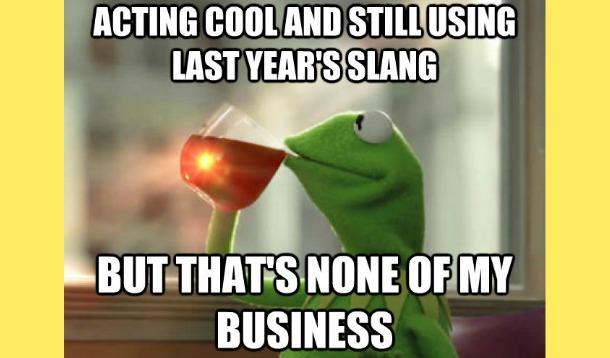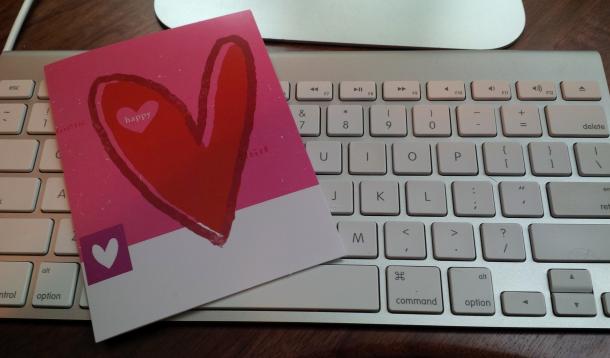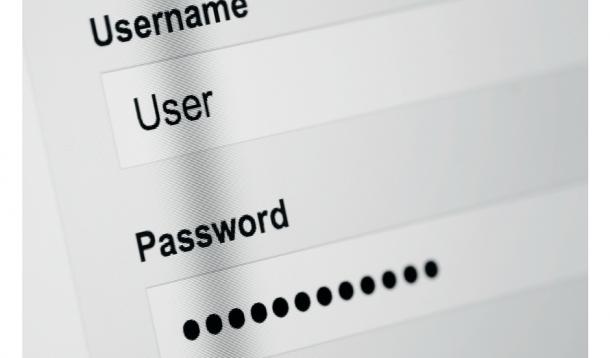
Ask.fm, a popular social network site, scoured their pages and compiled a list of the 20 hottest slang terms and acronyms that teens are using. Though terms tend to vary from network to network, this is a good overview across the board. This list should keep you from saying or doing something embarrassing - like inviting your kids to come watch Netflix and Chill.
1. TBR - To Be Rude. Said before someone reveals a harsh truth: "TBR I think you suck." Seems redundant on rudeness.
2. Peep - Short for people, like "My peep" or a quick look. Not a chick-shaped candy.
3. SMH - Shake My Head. Unbelievably dumb or wrong. The official reaction to all things Donald Trump.
4. THOT - That Ho Over There. Self explanatory. And it's still as derogatory as it sounds.
5. PAP - Post A Picture. Gotta see it to believe it.
6. Bad - Hot. To recap: bad used to mean cool, then it meant bad, now it means hot. Riiiight.
7. Ship - Short for relationship. When your kid in a 'ship' with another kid, it's not the boat variety.
8. :3 - Based on an anime cat face, it is supposed to look like the reaction to something clever or cute. Yah, I don't really see it either.
9. IDEK - I Don’t Even Know. No clue. Like "What just happened in here?" "OMG, IDEK"
10. IKR - I Know, Right? Exactly what I was thinking.
11. OOTD - Outfit Of The Day. Instagramers use this one a lot to share their own outfits or the OOTD that they found on someone else.
12. Dime - It's the 10 on a scale of 1-10. When something is awesome.
13. No chill - Not cool, embarrassing or irrational. Often used on parents in posts like "My mom has no chill."
14. Likers get rate - If you like the post or photo, the OP (original poster) will rank you amongst the others who like on some given scale (hotness etc).
15. Frog emoji + coffee cup emoji - Also known as "The Kermit Drinking Tea meme" is for when you call someone out on something then finish with "But that's none of my business."
16. Netflix and chill - There is no watching TV in this scenario. It is for hook-ups.
17. Savage - Something totally awesome. "That move you pulled was savage!"
18. AF - As Fuck. The best it can be. This is a Buzzfeed favourite. "Chris Pratt is hot AF in this pic." "10 times Adele was cool AF."
19. Slept - When you miss out on something because you slept through it, were extremely high or got hit in the head.
20. GOAT - Greatest Of All Time. Because when a goat in an OOTD is Dime AF, that's the GOAT.

Online dating has become extremely popular. According to Statistics Brain, as many as 17% of last year’s marriages were people who have met online. Not surprising in a digital age.
Like any other social network, online dating sites come with their own risks, maybe even more because of the very personal nature of the information you are giving away. For example, dating sites have a much higher record of maintaining your data even after you have canceled your profile. They do this in case you come back. Not sure what that says about their confidence in how well their matching works. Additionally, almost all of them use your data for research. Christian Rudder, the founder of OK Cupid, wrote a fascinating book called Dataclysm that discusses all the data collected from personal profiles on their dating site. It includes insights on how people say they’ll date various racial backgrounds and ages, but they really only select profiles in a much smaller demographic.
I thought I’d do some digging and read through the Terms & Conditions from several popular sites. I found some juicy examples of privacy policies below.
For reference, PII stands for Personally Identifiable Information.

eHarmony – a popular site where users fill out a 400 question survey and are matched together according to an algorithm that analyzes their answers.
”In addition, from time to time, we may share PII (such as e-mail or mailing address) about our user base with carefully selected third parties, so they can offer goods and services that we believe may be of interest to our users.”
Translation: We are happy to sell your email and mailing address for loads of money. We don’t care how much spam you get. Did we says how much money we make? We guarantee nothing.

Ashley Madison – their tagline is “life is short. Have an affair.” They have millions of married members seeking discreet affairs. You may remember them from the of summer 2015 when their databases, and member's names, were leaked. Somehow, they are still popular.
In their "defense," their old terms and conditions said:
“You acknowledge that although we strive to maintain the necessary safeguards to protect your personal data, we cannot ensure the security or privacy of information you provide through the Internet and your email messages.”
Translation: Though we tried to create a private website, the internet is well, the internet, and we guarantee nothing.
They have since removed this. Now we get this one:
"We may disclose and sell PII in connection with the sale, assignment, or other transfer of the business or a portion of the business of our Website, including a corporate merger, consolidation, restructuring, sale of assets or other corporate change of our direct or indirect parent companies that affects us."
Translation: If some unsuspecting company is willing to buy us out, they can have your data and do what they want with it. We guarantee nothing.

Grindr – a site that allows gay men to find other gay men in their geographic proximity using geolocation.
“The Grindr App user interface may include a feature to make certain items of Profile Information non-public, in which case we will respect your selection. However, even if you choose to make non-public certain items of your Profile Information if and as permitted by the user interface, sophisticated users who use the Grindr App in an unauthorized manner may nevertheless be able to obtain this information.”
Translation: We wrote some spiffy software to protect your data, but there are smart hackers out there so we guarantee nothing.

OK Cupid – a service which suggests matches but allows you to rank people you like.
“You should appreciate that all information submitted on the Website might potentially be publicly accessible.”
Translation: We’re not stupid, we saw what happened to Ashley Madison. We Guarantee nothing.
Bottom line? None of these sites ensure that your messages are private, nor that your location or profile information are secure.

If you (or someone you know) are one of the millions who are using online dating sites, here are some tips to protect yourself and your data so that you can enjoy a safe experience.
1. Turn off geolocation on your posted pictures
If your profile picture was taken with geolocation, or geotagging, turned on then the image contains data with the location where you took it, which could be your home. Turn it off on your device before taking photos you plan to post.
2. Read your terms and conditions
I know, it can be a drag, but there is a lot of personal information on a dating site and even if you think it is anonymous, your picture or email address could one day get linked to you and you want to make sure you are comfortable with what they may do to your data or pictures. Most of the T&C I looked through were actually fairly short so take a look. But ultimately, they guarantee nothing ;)
3. Use a throw-away email account
Your email address is tied to the account so now is a great time to create a ‘throw-away’ which is a new email address that you use just for that site. That way there are no ties back to your other accounts online.
4. Avoid signing in via another site
Be wary of signing in via Facebook Connect or Google+. This typically permits the dating site to access all of your info on that social network and thereby removes any anonymity you may have had.
5. Carefully consider nude photos
These could come back to haunt you. All photos online should be considered permanent. Be careful what you are sending online and who you are sending it to.
Stay safe, have fun, and happy dating!

Recently, the top 25 most common passwords were published and the list was full of predictable choices such as 'password', '1234' and 'qwerty'. And to show the signs of the times, 'starwars' and 'solo' also made it to the top.
I read the list and laughed. Seriously who uses 'password' for a password? Then I realized… I have. And I am betting you have too. The average person online now has around 100 digital accounts. Before you think that is a ludicrous number, consider all the accounts you use:
I have no less than 80 passwords written down which don’t include my primary accounts or those tertiary ones.
And if you are using ‘password’ or anything that predictable, you may as well not have a password at all.
Hackers are getting much better at writing programs to break passwords, especially common words. They use programs called ‘dictionary attacks’ where they take your email account (which could have come from any number of places) and then they try it with millions of ordinary words in the password field. The scary part, it takes seconds. It is that easy.
Your primary accounts should be considered sacred because they lead to your most valuable assets online: your personal data and your finances. If nothing else, these accounts should have kick-ass passwords on them and they should all be different (in the event that one account gets hacked, you do not want people gaining access to any others).
I will admit to reusing passwords on my secondary accounts, like access to Netflix or on my library card. Is this a risk? Sure, there is information associated to these accounts like my name and address, but as far as my viewing history or book holds go, I am not so worried.
As for the tertiary accounts, they don’t seem to matter: race results for your kids’ event or signing up for free dinner on your birthday at a restaurant. Problem here is that those accounts also contain personal info and you really should be more protective than just giving it away. The combination of your name and birth date from one of these places could be enough for a hacker to set up an account somewhere else in your name, or your child’s. Tips to avoid this below.
As you could have guessed, longer and more complicated is always better. The ideal password is 8 characters long, isn’t in the dictionary and includes both numbers and symbols. Yikes.
Here are some tips to create strong passwords:
Many websites are now offering Single Sign On. This is the ability to use your Facebook, Google, or Twitter ID to log in. If this is a trusted site, this could be a good option; HOWEVER (big caveat here), when you do this you allow the new website access to your personal information from your social network. For a full list of what info you give away, you can read more in my article on Signing in Using Social Media Logins.
The other option is to fake it. I literally just created a fake account to get access to the MS Readathon page for my daughter. All I wanted was the end date of the event at her school but I was not interested in creating a real account to do it. I made up a name and an email. If you want to create an account with a fake email but still need it to be legit, you can always use 10 minute mail. This creates a temporary email address that lasts, well, 10 minutes. Long enough to get in, verify the account, do what you need, and leave no trace behind.
I get this question all of the time. There is no right answer, so do what works for you. You should have your primary passwords memorized, especially if you use them daily.